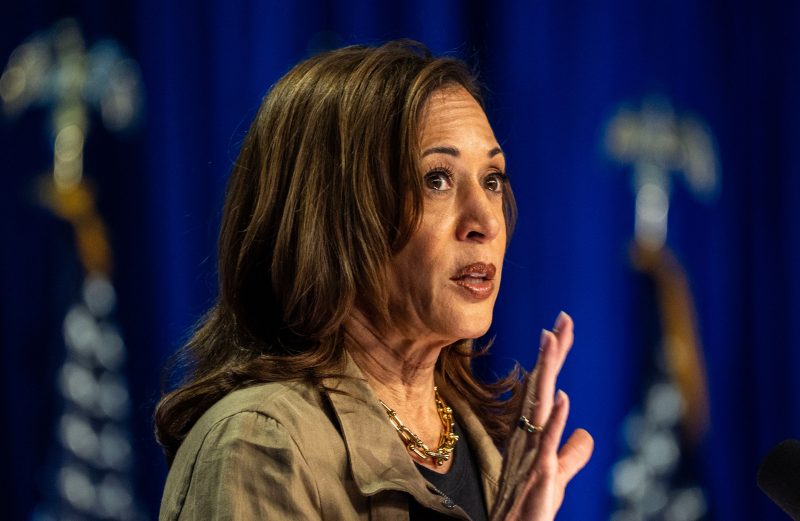
Economic and Border Divide: How Will the Harris-Trump Clash Impact?
In the current political landscape, two prominent figures, Vice President Kamala Harris and former President Donald Trump, stand on opposite sides when it comes to their views on the economy and border policies. Their stark differences in approach and rhetoric have drawn significant attention, leaving many to wonder how these contrasting outlooks may impact the future of the nation.
When it comes to economic policies, Vice President Harris and former President Trump have articulated divergent strategies. Harris, as a proponent of progressive economic reforms, emphasizes initiatives aimed at addressing income inequality, expanding access to healthcare, and prioritizing sustainable and renewable energy solutions. On the other hand, Trump, a self-identified proponent of economic nationalism, largely focused on trade protectionism, tax cuts, and deregulation during his time in office.
The contrasting economic visions of Harris and Trump are likely to shape the debate on economic policy in the coming years. Harris’s emphasis on social welfare programs and environmental sustainability aligns with the priorities of many progressive voters, advocating for a more equitable distribution of wealth and an increased focus on climate change mitigation efforts. In contrast, Trump’s adherence to a more traditional conservative economic agenda may continue to resonate with a significant portion of the Republican base, emphasizing free-market principles and deregulation as drivers of economic growth.
Furthermore, the issue of border security and immigration policies remains a point of contention between Harris and Trump. Harris has been a vocal advocate for more humane and compassionate immigration policies, emphasizing the importance of addressing the root causes of migration, providing a pathway to citizenship for undocumented immigrants, and upholding the rights of asylum seekers. Conversely, Trump’s approach to border security was marked by a tough stance on immigration enforcement, including the construction of a border wall, strict immigration restrictions, and the implementation of policies such as family separations.
The contrasting views of Harris and Trump on border and immigration policies reflect broader ideological differences within the American political landscape. Harris’s advocacy for a more inclusive and humanitarian approach to immigration has garnered support from progressive groups, highlighting the importance of empathy and global cooperation in addressing migration challenges. Meanwhile, Trump’s hardline stance on immigration continues to resonate with a segment of the conservative base, underscoring concerns about national security, law enforcement, and the economic impact of immigration.
As the debate on economic and border policies unfolds, the positions espoused by Harris and Trump are likely to influence the direction of political discourse and policy-making in the United States. The contrasting visions presented by these two figures underscore the ideological divides within the country and set the stage for contentious debates on issues ranging from income inequality and climate change to immigration and national security. In this era of heightened political polarization, the differing perspectives of Harris and Trump serve as a reflection of the divergent paths that lie ahead for the nation.
